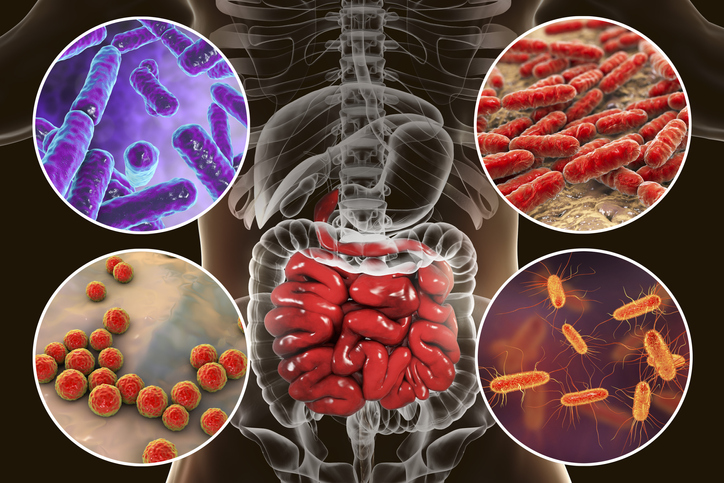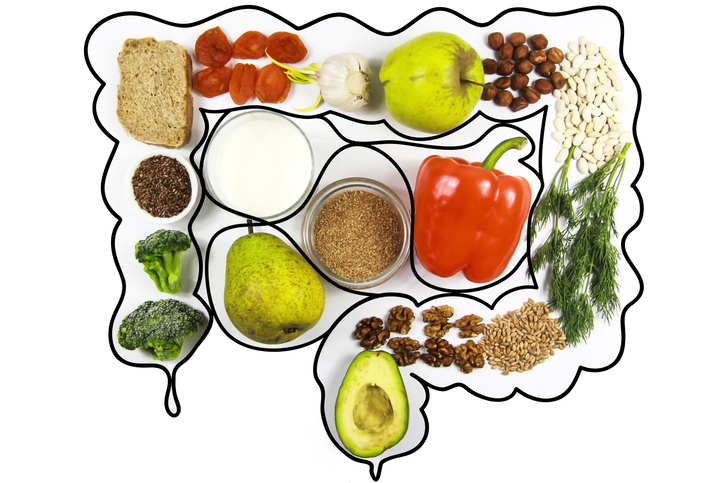
Our intestines contain trillions of living microorganisms, including bacteria, fungi, and viruses (Robertson, 2017). Collectively, these microorganisms are known as the gut microbiome. While some of these microorganisms—also referred to as microbiota or microbes (Harvard.edu, 2020)—are essential for good health, others have been found to be detrimental, linked to various diseases and other conditions (Dix, 2020). With this in mind, scientists have long researched different ways to promote the growth of healthy gut bacteria. The latest research supports the understanding that a variety of foods in particular can help to promote a balanced microbiome, leading to many potential health benefits (Valdes, 2018).
To understand more on the foods that help to promote the diversity of gut bacteria, and what kinds of health advantages can be gained through such dietary changes, we examine the research here.
The Gut Microbiome Explained to Students Enrolled in Nutritionist College
While trillions of microorganisms live in the human gut, the microbiota that researchers are most concerned with are bacteria. There are as many as 300 to 500 different species of bacteria living in the human digestive tract (Quigley, 2013), all having a role in how well we absorb nutrients and how our immune system functions (Sandoiu, 2019).
Some researchers believe the intestinal tract is sterile at birth, and that the infant’s gut is “first colonized by maternal and environmental bacteria during birth and continues to be populated through feeding and other contacts” (Quigley, 2013). The environmental factors and diet that a person is exposed to is thought to potentially “change one’s microbiome to be either beneficial to health or place one at greater risk for disease” (Harvard.edu, 2020).
According to many studies, a greater overall diversity of gut microbiota is key for achieving optimal health—with less diversity in gut bacteria often discovered in people with diseases (Henriques, 2020). Looking for ways to boost that diversity is important, according to researchers, given the role that healthy bacteria have in generating nutrients and vital substances the body’s cells can’t produce (Henriques, 2020). One approach for boosting diversity is the introduction of dietary changes, as diet is a key component in shaping the microbiome (Conlon, 2015).

Foods Associated With Healthier Gut Bacteria
Through advanced analytic technologies in microbiology, scientists have been able to identify the many types of bacteria living in the human gut, as well as characterize good bacteria and bad bacteria (Quigley, 2020).
One study conducted by researchers from the University Medical Center Groningen, The Netherlands
tested a variety of foods on those living with Crohn’s disease, ulcerative colitis, and irritable bowel syndrome, as well as members of the general population with no known gut complaints (Sandoiu, 2019). By analyzing the gut microbiota of these participants, the researchers discovered certain food types that provided anti-inflammatory effects and lowered levels of harmful gut bacteria. The study concluded that a Mediterranean-style diet, rich in nuts, bread, vegetables, legumes, fish, and moderate levels of red wine, can be beneficial to the gut ecosystem (Sandoiu, 2019). It also concluded that lowering the consumption of red meat, processed meats, and sugary foods can be beneficial to gut health (Sandoiu, 2019).

Other studies have been preoccupied with the introduction of probiotics, prebiotics, fermented foods such as kombucha and kefir, and other consumable items known to modify the gut’s microbiota. While research associated these foods with an increase in certain strains of good gut bacteria, other research suggests that the singular introduction of such foods to a person’s diet won’t necessarily increase the overall diversity of their microbiota (bbc.com, 2020).
The Link Between Health Conditions and a Balanced Gut Microbiome
Research has shown that achieving a greater gut microbiota diversity can help to combat several different types of intestinal conditions, including IBS, Crohn’s disease, ulcerative colitis, and other gut complaints (Sandoiu, 2019). It will be of interest to those attending nutritionist school to discover that the health benefits also extend beyond the digestive tract.
Researchers have found that a balanced gut ecosystem can also influence blood pressure, the aging process, and even the symptoms of some mental health conditions. (Sandoiu, 2019). Studies link more diverse levels of gut bacteria with a stronger immune system, a lower BMI, and an improvement in the symptoms of anxiety and depression (Quigley, 2013). A lack of diversity of microbiota, meanwhile, is linked to several inflammatory diseases, including “inflammatory bowel disease (IBD), psoriatic arthritis, diabetes, atopic eczema, coeliac disease, and arterial stiffness” (Paskins, 2019)—while still other research indicates an association between poor gut health and negative impacts to the immune system, as well as strong links to endocrine disorders, skin conditions, and cancer (Dix, 2020).
How Nutritionists Can Use This Research to Support Clients
Those attending nutritionist college will be looking to a future helping clients develop lifestyle and dietary changes that may lead to better health and a better overall quality of life. When creating comprehensive nutritional strategies to reach these goals, it’s important to understand the role of the microbiome in achieving improved health.
As one study concludes: “It is now understood that diet plays a significant role in shaping the microbiome, with experiments showing that dietary alterations can induce large, temporary microbial shifts within 24 h. Given this association, there may be significant therapeutic utility in altering microbial composition through diet” (Singh et al, 2017). Understanding these findings, and knowing which foods to direct clients to, can be useful in helping them to achieve improved health.
Are you interested in pursuing your nutrition diploma?
Contact Rhodes Wellness College today to learn more about our Professional Integrative Nutrition Diploma Program.
Works Cited:
Robertson, R. (2017). Why the Gut Microbiome Is Crucial for Your Health. Retrieved from https://www.healthline.com/nutrition/gut-microbiome-and-health
Harvard School of Public Health (2020). The Nutrition Source. The Microbiome. Retrieved from https://www.hsph.harvard.edu/nutritionsource/microbiome/#:~:text=Now%20imagine%20this%20at%20a,fungi%2C%20parasites%2C%20and%20viruses.
Dix, M. (2020). What’s an Unhealthy Gut? How Gut Health Affects You. Retrieved from https://www.healthline.com/health/gut-health
Valdes, A. et al. (2018). Role of the gut microbiota in nutrition and health. Retrieved from https://www.bmj.com/content/361/bmj.k2179
Quigley, E. (2013). Gut Bacteria in Health and Disease. Retrieved from https://www.ncbi.nlm.nih.gov/pmc/articles/PMC3983973/
Conlon, M. (2015). The Impact of Diet and Lifestyle on Gut Microbiota and Human Health. Retrieved from https://www.ncbi.nlm.nih.gov/pmc/articles/PMC4303825/
Sandoiu, A. (2019). Which foods are beneficial for a healthy gut microbiome? Retrieved from https://www.medicalnewstoday.com/articles/326744
BBC.com (2020). How to eat your way to a healthy gut. Retrieved from https://www.bbc.com/future/article/20190205-how-to-eat-your-way-to-a-healthy-gut
Paskins, L. (2019). Plant-based foods and Mediterranean diet associated with healthy gut microbiome. Retrieved from https://eurekalert.org/pub_releases/2019-10/sh-pfa101519.php
Singh, R. et. Al (2017). Influence of diet on the gut microbiome and implications for human health. Retrieved from https://www.ncbi.nlm.nih.gov/pmc/articles/PMC5385025/









